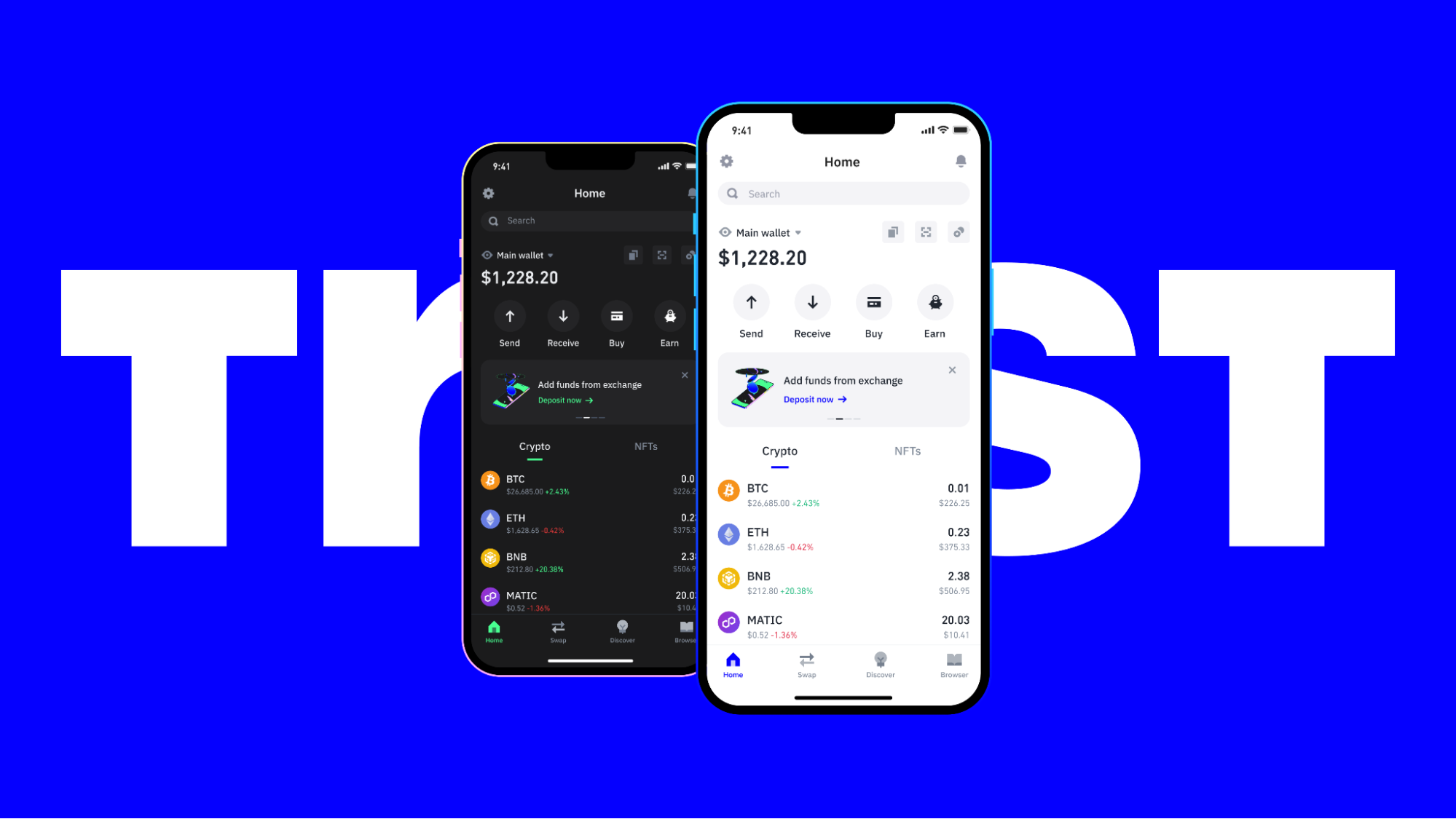In the world of cryptocurrency, a crypto wallet is an essential tool for securely storing and managing digital currencies. Whether you’re an investor, trader, or someone looking to dive into the crypto space, understanding what a crypto wallet is and how it works is crucial. This article will explore the different types of trustwallet, how they function, and why they are important for safeguarding your assets.
What is a Crypto Wallet?
A crypto wallet is a digital tool that allows you to store, send, and receive cryptocurrencies such as Bitcoin, Ethereum, or other altcoins. Unlike traditional wallets that hold physical currency, crypto wallets store the private keys needed to access your digital assets. These private keys are essentially the passwords that give you control over your funds on the blockchain.
In essence, a crypto wallet doesn’t actually store cryptocurrencies like a physical wallet stores cash. Instead, it stores the cryptographic keys necessary to interact with the blockchain, where your assets are kept.
Types of Crypto Wallets
Crypto wallets come in different forms, each offering varying levels of security and convenience. Below are the primary types of crypto wallets:
- Hot Wallets (Software Wallets)
Hot wallets are connected to the internet, which makes them more convenient for frequent transactions. They come in various forms, such as desktop software, mobile apps, and web-based wallets. While hot wallets are easy to use and quick for transferring cryptocurrencies, they are also more vulnerable to hacks and malware because they are online. - Cold Wallets (Hardware Wallets)
Cold wallets are offline storage solutions that provide an extra layer of security by keeping your private keys away from the internet. These wallets come in the form of physical devices such as USB sticks, which can be plugged into a computer when you need to access your cryptocurrencies. Cold wallets are ideal for long-term storage because they are less susceptible to hacking and cyberattacks. - Paper Wallets
A paper wallet is a physical document that contains your private keys and public address in the form of QR codes. It is considered a cold storage method because it is not connected to the internet. Paper wallets are cheap to create and provide robust security when stored properly, but they are prone to damage or loss. - Custodial Wallets
Custodial wallets are managed by third-party services such as exchanges or wallet providers. In these wallets, the provider holds your private keys on your behalf. While custodial wallets are easy to use, they come with the risk that the provider could be hacked or experience technical issues, leading to potential loss of funds. - Non-Custodial Wallets
Non-custodial wallets give you full control over your private keys, meaning you are the sole person responsible for the security of your assets. These wallets allow for greater privacy and control, but they also come with the responsibility of ensuring the safety of your keys.
How Does a Crypto Wallet Work?
A crypto wallet operates using two keys: the public key and the private key.
- Public Key: This is similar to a bank account number. It is shared with others to receive funds. You can share your public key with anyone who wants to send you cryptocurrency.
- Private Key: This is like the password to your bank account. Only you should know your private key. It’s used to sign transactions and access your digital assets. If someone gains access to your private key, they can control your cryptocurrencies.
When you receive cryptocurrency, it is not stored in your wallet itself but on the blockchain. Your wallet simply allows you to access and manage the blockchain records by using your private key to interact with your public address.
Why Do You Need a Crypto Wallet?
A crypto wallet is essential for several reasons:
- Security: Cryptocurrency wallets allow you to store your assets securely and protect them from unauthorized access. By using private keys, you ensure that only you have control over your funds.
- Convenience: With a wallet, you can easily send and receive cryptocurrency across the world in a matter of minutes. Many wallets offer user-friendly interfaces, making it easy for even beginners to navigate the world of crypto.
- Ownership: A wallet gives you complete control over your cryptocurrency holdings. Unlike traditional banking systems where banks control your funds, crypto wallets allow you to manage your assets independently.
- Privacy: Many crypto wallets prioritize user privacy, offering features like anonymous transactions and decentralized control. Non-custodial wallets, in particular, give you more privacy compared to custodial wallets.
How to Choose the Right Crypto Wallet?
Selecting the right crypto wallet depends on several factors, including:
- Security: If security is your top concern, you may want to opt for a hardware wallet or a non-custodial wallet, as these provide greater control over your private keys.
- Convenience: If you frequently trade or use your cryptocurrencies, a hot wallet might be more suitable because of its ease of access and transaction speed.
- Cost: Some wallets, especially hardware wallets, come with a price tag. Consider your budget before purchasing a wallet.
- Compatibility: Ensure that the wallet supports the specific cryptocurrencies you plan to store.
